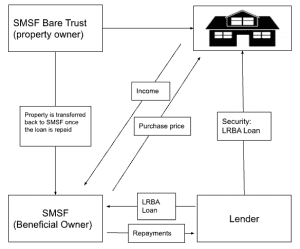
I’ve recently had a number of conversations about the Banking Royal Commission. It’s topical and we’ve heard some grim allegations.
To date, much of the focus within the Commission has been whether banks and brokers are scrutinizing income and expenses sufficiently and/or whether the banks are getting enough information about their clients’ individual circumstances. We’ve also heard allegations of fraud and ‘liar loans’.
From my perspective, if the Royal Commission exposes ‘shonky practices’, I’m all for it. There is no excuse for knowingly putting people into debts that they cannot repay and there is certainly no excuse for falsifying information. Bankers or brokers who engage in these practices need to be identified and ‘weeded-out’.
The Commission has also focused on upfront fees and trailing commissions that banks pay to brokers. Brokers have been criticised for taking upfront and trailing commission and there have been allegations that brokers have provided larger loans, purely in an attempt to get more commission.
Dealing with each of these, it is true that banks pay brokers for new loans and then trail income is paid:
- Upfront fees are paid as a result of the introduction and due to the work that goes into the loan. Without going into the boring detail, many hours of work can go into an individual loan from the initial conversation through to the settlement.
- Trail income is then paid to assist with the ongoing service of the loan. Individual circumstances are reviewed annually to ensure that the basis for the initial loan recommendation has not changed.
- It’s also important to note that upfront and trail commissions have been pretty much standardised across all lenders, so there is no financial incentive to refer loans to one lender over another (eliminating the dreaded conflict of interest). All commissions are also fully disclosed.
In relation to the loan size, it no longer matters what loan size is approved. Banks only pay based on the amount of the loan that is drawn. This means that loans cannot be artificially inflated to gain more commission.
Whilst I totally agree with exposing bad-practices, I think that there are some potential side-effects of the Royal Commission that are worrying. The high level of attention that is being applied to the banks is making them more cautious. This means that they are scrutinising all loan applications more closely. For the great majority of genuine borrowers, this increased scrutiny is going to make it harder to pass the banks tests and actually get a loan. It is also making the loan approval process slower and we are seeing evidence that the changing standards mean that the borrowing capacity of all borrowers is being reduced. In some cases, we are seeing cases where borrowers cannot refinance existing debts to a lower rate because they no longer qualify for the amount that they have already borrowed (meaning that they get stuck with a higher rate loan).
I have no objection to a ‘proper’ level of scrutiny, it should be difficult to get a loan because it is always difficult to pay it back. In the case of a home loan, it’s a 30-year commitment, which is a long time! It simply gets to the point where the additional scrutiny can lose its value.
For businesses, the time taken to get a loan can create problems. Business decisions need to be made quickly and the business cannot wait weeks for an answer. This is why alternative lenders have evolved (and are prospering). I’ll provide some tips for businesses on how to increase your chances of getting a quick response in a separate article.
What can the Royal Commission Do?
Whilst the Royal Commission may hear stories of misconduct, it does not have the power to punish, or to award compensation. The Commissioner is due to submit an interim report in September 2018 and the final report in February 2019. These reports will contain a series of recommendations. It will then be up to the industry to act on those recommendations.
In summary:
I’m supportive of weeding out any poor conduct wherever it occurs (brokers, banks or elsewhere). I do believe that the offenders are very much in the minority and the industry will be improved if they are gone. I know a great number of brokers and bankers and I’m confident that the vast majority work hard for their clients and take their obligations very seriously.
I’m worried that the longer-term consequences will make it unnecessarily difficult to access money when it’s needed.
#HomeLoan #BankingRoyalCommission #Businessloans #Commercialloans #Perthbusinessloans #Purchaseproperty #ProtegerFinancialSolutions #Investmenthomeloan
